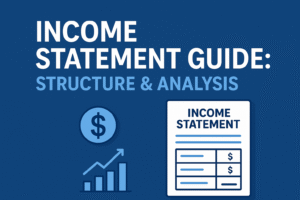To increase corporate transparency and combat money laundering, fraud, and other financial crimes, the U.S. government has introduced new business reporting requirements.
Starting January 1, 2024, the Corporate Transparency Act (CTA) mandates that many small businesses file a Beneficial Ownership Information (BOI) report with the Financial Crimes Enforcement Network (FinCEN). This will impact millions of small businesses.
Here is an overview of BOI reporting, who needs to comply, and what small businesses should know.
What is the BOI Report?
The BOI report requires companies to disclose detailed information about the individuals who own and control them. This includes not only direct ownership but also indirect control through other means.
The purpose is to make it easier for regulators and law enforcement to track ownership and prevent illicit activities such as money laundering and tax evasion. For businesses, it is important to understand this reporting requirement when entering into contracts or partnerships with companies, as the owners’ identities will be disclosed.
Who Must File a BOI Report?
The BOI report must be filed by reporting companies, which are generally entities created or registered to do business in the U.S.
- Domestic entities: Corporations, limited liability companies, and other organizations formed by filing documents with the Secretary of State.
- Foreign entities: Corporations, limited liability companies, and other organizations established in a foreign country but registered to conduct business in the U.S.
These companies are required to file their reports through the FinCEN website. While any authorized person can file the report on behalf of the business, the company itself is ultimately responsible for ensuring compliance with the reporting rules.

Who is Exempt from BOI Reporting?
FinCEN has identified 23 types of legal entities that are exempt from filing a Beneficial Ownership Information (BOI) report based on their regulatory status or other public interest factors.
Exempt Entities Include:
- Large Operating Companies: To qualify, companies must:
- Have over 20 full-time employees in the U.S.
- Maintain a physical office location in the U.S.
- Report over $5 million in gross receipts or sales on their previous year’s federal tax return.
- Tax-Exempt Entities: Organizations that are exempt from federal tax, such as charities or political organizations.
- Governmental Authorities: Federal, state, local, and tribal government agencies.
- Financial Institutions: Includes banks, credit unions, and depository institution holding companies.
- Inactive Entities: Must have been formed before January 1, 2020, and meet the following criteria:
- Not conducting active business.
- No foreign ownership.
- No significant financial transactions in the last year.
- No changes in ownership or assets in the past 12 months.
- Brokers or Dealers in Securities: Entities registered with the SEC under the Securities Exchange Act.
These exemptions aim to lessen the compliance burden on entities that either face stringent regulatory oversight or are not actively engaged in business.
To learn more about BOI Exemptions, click here.
What Information is required to complete?
Small businesses must provide the following details about their company:
- Company Information:
- Full legal name.
- Business address (P.O. boxes are not allowed).
- State or Tribal jurisdiction where the company was registered.
- Taxpayer Identification Number (TIN) and supporting documents (e.g., Articles of Incorporation).
- Beneficial Owners:
- Full legal names and Date of Birth.
- Address.
- A photocopy of government-issued identification (e.g., U.S. driver’s license or passport).
- Company Applicant:
A company applicant is the person who submits the paperwork to create a corporation, LLC, or any other entity with the state, or who registers a foreign (non-U.S.) entity to operate in the U.S.
If your business was registered on or after 2024, you are required to provide details about the company applicant.
- Name and Date of Birth.
- Home addresses (no P.O. boxes).
- A photocopy of government-issued identification (e.g., U.S. driver’s license or passport).
This information must be accurate and up-to-date to avoid penalties.
Who is a beneficial Owner?
A beneficial owner is an individual who, directly or indirectly:
- has substantial control over the reporting company, or
- owns or controls 25% or more of the company’s ownership interests.
| What does “substantial control” over a reporting company mean?An individual with “substantial control” typically includes:Senior officers of the company,Anyone with the authority to appoint or remove senior officers, such as members of the board of directors, andAnyone who has significant influence over the company’s major decisions. |
How to File a BOI Report
Businesses can submit a Beneficial Ownership Information Report (BOIR) at no cost, and the process typically takes less than 15 minutes to complete.
There are two methods for filing a BOI report:
- PDF BOIR: This method allows companies to prepare their reports offline using Adobe Reader, save the file, and reuse it when making updates or corrections. After submitting, you can download the transcript for your records.
- Online BOIR: This method enables businesses to complete the report directly through the FinCEN website. Updates and corrections must be filed using a new online report.
When is the deadline to file?
The filing deadlines vary depending on when the company was established:
- For companies formed before January 1, 2024: They must file their initial BOI report by January 1, 2025.
- For companies formed between January 1, 2024, and January 1, 2025: They must file within 90 days of formation, or from the public announcement of the company’s formation.
- For companies formed after January 1, 2025: They must file within 30 days of their formation or public announcement.
- For updates and corrections: Any corrections or updates to previously submitted information should be filed within 30 days of the change.
Penalties for not filing BOI report?
Failure to comply with the BOI reporting requirements can result in serious penalties. Businesses or individuals who willfully fail to file or submit incorrect information may face:
- Civil penalties: Up to $591 per day (adjusted for inflation).
- Criminal penalties: A fine of up to $10,000 and/or up to two years in prison.
These penalties underscore the importance of accurate and timely reporting.
The BOI report is part of a broader push for greater financial transparency and accountability. While small businesses may face new compliance burdens, understanding these requirements and ensuring timely filing can help avoid penalties and contribute to a more transparent business environment. To avoid mistakes, businesses should stay on top of their filing deadlines and ensure the information reported is accurate and complete. Hope the above details help you to know about the basics of BOI and filing BOI reporting and other details regarding Beneficial Ownership Information.
What will FinCEN do with my BOI Report?
FinCEN will store the information in a secure, private database, ensuring it is not accessible to the public. The agency is required to implement strict safeguards to protect the data and limit access to authorized users for authorized purposes.
However, FinCEN can disclose Beneficial Ownership Information (BOI) to a limited group of requestors, including:
- Federal agencies involved in national security, intelligence, and law enforcement.
- State, local, and Tribal law enforcement agencies with a court order.
- The U.S. Department of the Treasury.
- Financial institutions, with the company’s consent, for customer due diligence.
- Government regulators overseeing financial institutions’ compliance with due diligence laws.
- Certain foreign authorities, through a U.S. agency.
If the reporting company ceases to exist, the information will be retained for at least five years.







